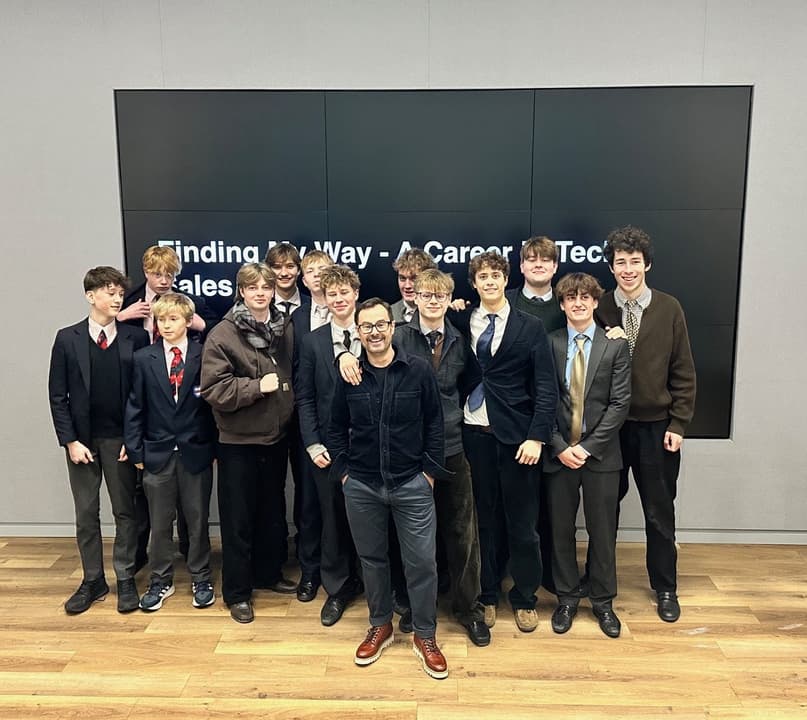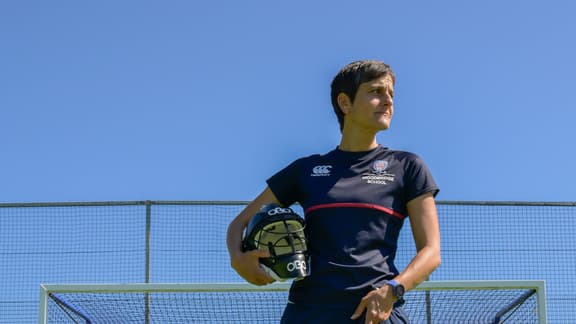
Spotlight on Hockey
Learning Hockey from a Double Olympian
As the Paris 2024 Olympics approaches, the world’s elite athletes are gathering ahead of going for Gold at the centenary of the 1924 Games, which took place in the same city!
Someone who knows exactly how those athletes will be feeling now, and during the Games, is our Head of Hockey, Mariette Rix, a former South African international hockey player and double Olympian herself having competed in Beijing 2008 and again in London 2012. She’s also played in two world cup tournaments and one Commonwealth Games among other tournaments and test series in a career of over 150 international matches. Our Level 2 Hockey coach, an EH National League coach and former England Hockey Performance Centre goalkeeper coach, believes wholeheartedly that sport teaches values, resilience and respect.
Bringing a wealth of experience and insight into not just hockey, but the world of sport, she’s an inspiration and role model for students at Woodbridge School, her passion for sport, for Hockey in particular, is clear for all to see on and off the pitch as she and her coaching team strive to inspire the next generation of hockey players.
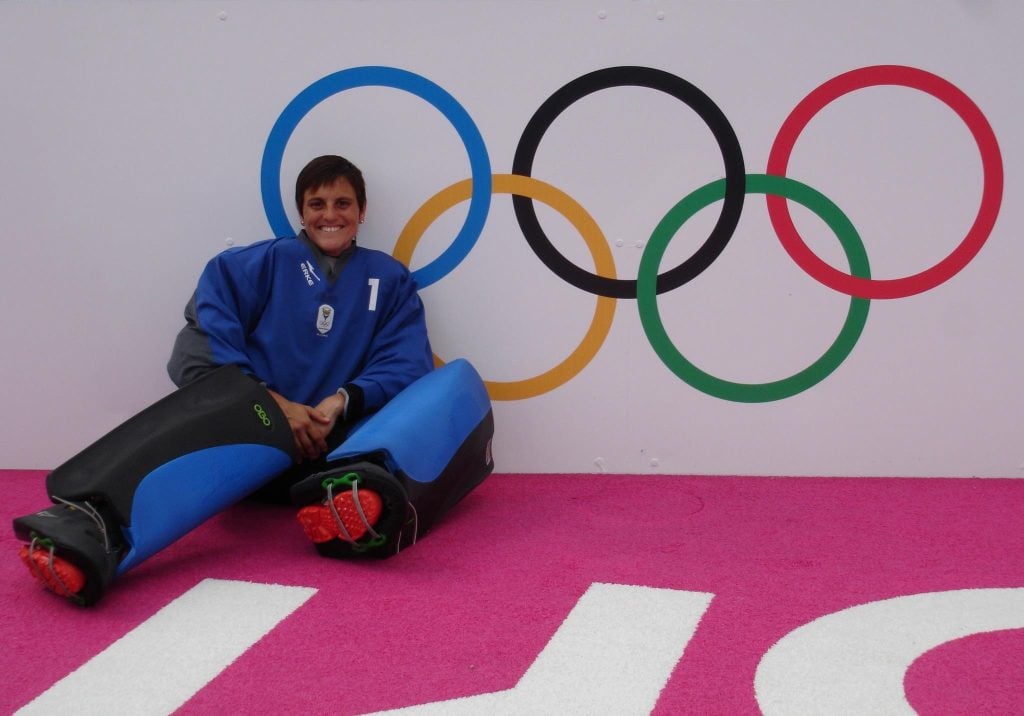
One of the biggest team sports in School, Hockey is played as part of games lessons, alongside after School and lunchtime training opportunities. Curriculum and co-curricular sessions focus on development of technical skills, tactical knowledge and the application of both. Our team of coaches work hard in School to cover every area of expertise to enable students to learn and develop whether that’s playing for the School, their local clubs or perhaps one day competing in the Olympic Games themselves.
Mariette Rix, Head of Hockey
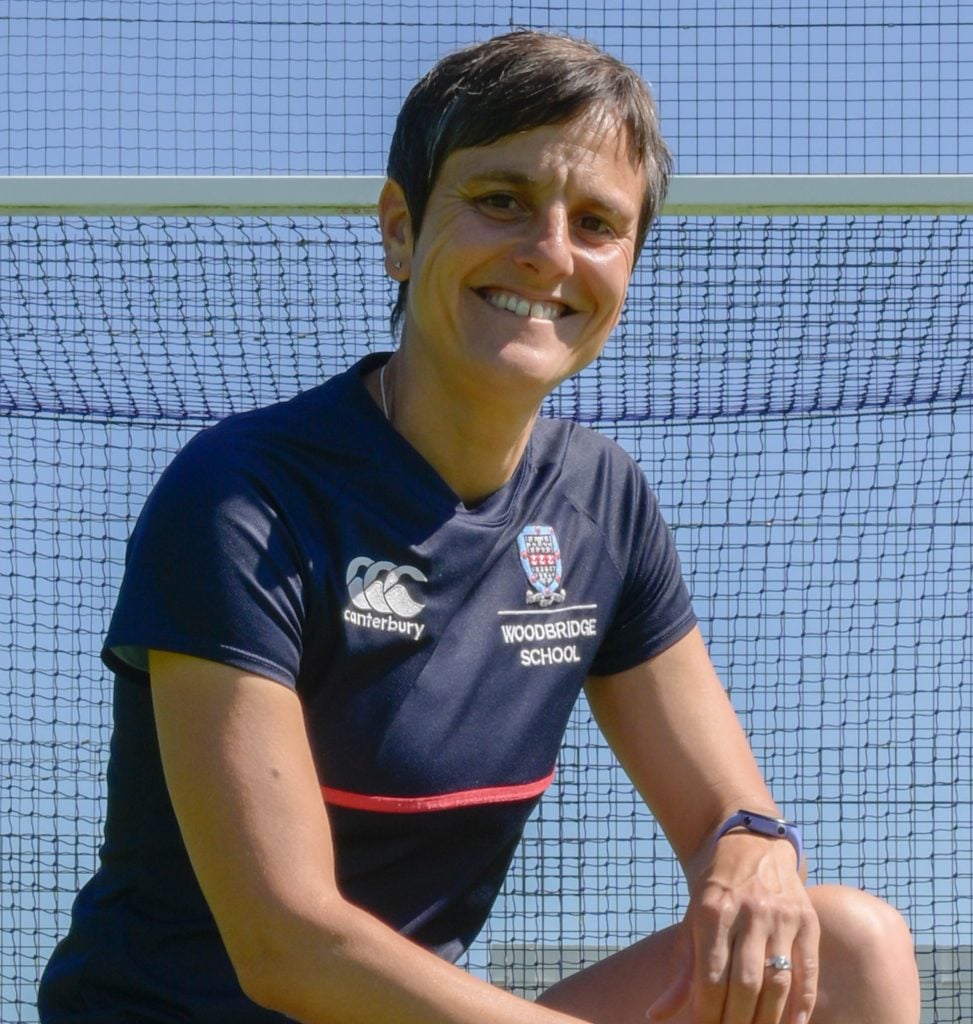
Talking about the forthcoming Olympics, we caught up with Mariette recently,
“The Olympic Games remain a sporting highlight, in my view; a special event like no other. For many, it is the pinnacle of their sport and just competing sets them apart from those that never get that honour.
I love the fact that so many professional athletes, like tennis players and golfers, covet an Olympic Gold medal more that all the fortunes they can make winning other titles.
Despite the plethora of international sport we see now, being able to absorb 32 different sports, at the highest level, with the best of each country (big and small) in a condensed two-week period, is pretty amazing.
I love the knock-on effect the Olympics has; people see a huge variety of sports that perhaps ordinarily they don’t, and it somehow inspires them to try something new! There are so many new sports coming through as well, which really will broaden the definition of sport; it’s exciting and inevitably will lead to more people being active and getting the benefits it brings.
The Olympics bring people together, as only sport can do. From the Olympic Athletes’ Village itself, where famous sport people including the athletics stars, footballers, tennis players, rugby players, cricketers and others that we see on our screens regularly, to those who may be considered ‘unknown’, albeit the best in their respective countries and in their respective sport. These sportspeople come together to live, train, relax and share time together, and they all compete in front of millions of spectators watching live in venues or on screens across the world.
Alongside the sports and competitions, there’s also the experiences, opinions, highs and lows, that are shared during the Olympics. These give us all invaluable insight to mindset, lifestyle and again, encourage many to relate.
I remember people sharing stories during the London Olympic 2012, the impact was amazing – all of a sudden commuters were all talking to each other on trains and buses, sharing their stories from the Olympics they were experiencing, it was brilliant. This is the power of the Olympics – of sports.
From a hockey perspective in particular, I’m excited to see how things develop. The Pro-League has changed the landscape of hockey somewhat and I hope the countries who do not take part in that, but have qualified for the Olympics, will compete well at this level, where experience and regular competition counts for a lot.
The speed and skill level of the international game have developed exponentially over recent years which make even a low scoring match incredibly exciting. If you look away you are likely to miss some amazing skill or action – the game barely ever stops!
With slightly different rules on team numbers at the Olympics I’m also intrigued to see if this impacts how people play in the latter part of the event when fatigue sets in, or indeed if they change how they play at the start, to try limit physical attrition to have enough left for the knockout games.
I am not a massive fan of the quarter final tournament structure with only two pools, however it does increase the excitement and tension of more knockout games. It also keeps the tournament alive if a team has a slow start, with no points from opening games, as the right win at the right time could still provide a quarter final spot. So it leaves all to play for in every game, and no one can afford a slip up.
For the first time (in my experience of the Olympics as a player, or after) South Africa and Great Britain will be in the same pool in the women’s competition, so I am quite excited to see how that one unfolds for obvious reasons.
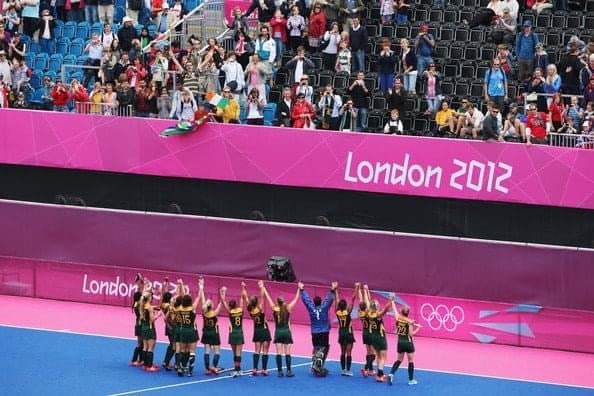
What’s also going to make a difference for me and others watching from the UK and Europe, is that there will be only a slight time difference since France will only be an hour difference.”
Speaking about what she believes is needed to become an Olympian, Mariette said that this was a challenging question, sharing,
“This is really hard, as I wonder if anyone sets out from the start of their sporting journey to become an Olympian? Representing one’s country is definitely a childhood dream I think for anyone who discovers they have a talent in a specific area.
A love for what you do – in the first instance – which will likely make you want to do the all the other things if you realise you can compete at a certain level – commitment, sacrifice (at times), work ethic, discipline, standards, resilience, competitiveness, decisions and more. You also need patience and consistency; hard work never stops, you can’t let off, otherwise someone will overtake you.
The better you get, the harder you need to work, in my view, as you are constantly setting new standards for yourself and you want to keep improving. That is the one message I try to convey to people I coach now, including students in School. People often say “…but I have worked so hard…”, and I try to emphasise that working hard once or for a short period of time may not be enough. Most often it takes years of hard work to make an overnight success. I love Usain Bolt’s quote on this point, “I trained for four years to run only nine seconds. There are people who do not see results in two months, give up and leave. Sometimes failure is sought by oneself.”
She reflected further,
“I think you also need a bit of luck sometimes, and timing along the way. My heart always breaks for those who are destined to be selected, or who have qualified, but then get injured and do not get to fulfil that dream. On the other hand, someone missing out creates an opportunity for someone else, and if they use that well, it can change everything.
That is also why I feel it is important to keep showing up. You may not be in favour yet, or the best yet, but you must be there to take an opportunity, otherwise someone else will. And that is where the discipline and sacrifice come into it – you can choose to go do something else, or you can choose to make sure you are at training. One is fun and one is hard, but which one will give you what you want most? This is often what I feel is the difference between people who succeed or are the best at what they do, and those who do not do those things – the choice whether you are going to pursue it or not, and make the sacrifices needed to be your best. And that is where personality types come into it I guess also, as some people are wired that way, and others are not. For example, I am sure there are millions of amazing singers out there, who are not pop stars – as this was not something they wanted to commit to so they made different choices and follow a different path.
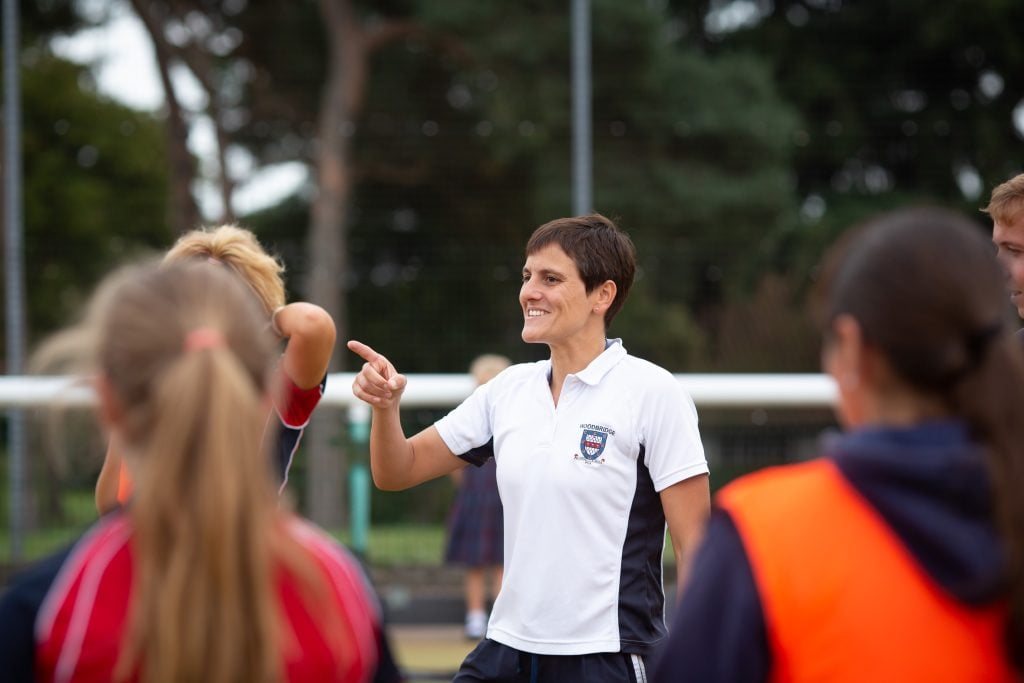
And of course, different sports require different things, it’s important to recognise that competing in a team sport, and what that requires on a personal and interpersonal level (and also the advantages of it) and competing in an individual sport are very different – as are the individual sports people who take part.
Talking about her experience of teaching sport at Woodbridge School she said,
“I am a person who I feel lives to my values. I try to practice what I preach. I guess I also identify strongly with the Olympic values – excellence, respect, and friendship.
I hope I bring this across in my teaching. Regularly there would be life lessons and principles as well as value-based discussions during lessons and practices; and for me this all revolves around having high standards.
The most recent such learning from a lesson in School has been: do what you need to do, as well as you can, the first time – even if it is hard or takes some time and extra effort. This will avoid you spending time, energy and emotion having to do it all again.
Personally, I am a perfectionist and aim to be well prepared for everything I do, to try to this to the best of my ability. This is true for each lesson, coaching session or match. I firmly live by the saying “failing to plan, is planning to fail”. I like trying new things and being creative in teaching and coaching, to also improve and develop myself. Hopefully this also results in students not getting bored by doing the same thing or knowing what to expect when developing certain aspects of their play and skills.
I place emphasis on celebrating small successes and finding a magic moment, challenging the most and least able equally, as well as peer support. Sport is very much about relationships for me. Being caring and positive in these, supportive even when needing to be critical, and also bringing good humour into interactions, enhances my experience and that of the students and players I work with.
Mariette believes in encouraging and motivating students by introducing them to sports men and women who have achieved great things, an opportunity for them to share their experiences and what they learned along the way. She shared,
“As my own Olympic experiences were a few years ago now, I try to keep things more relevant by encouraging prominent hockey players to speak to and meet with the students. I am aware many students were very young when I retired from international hockey, and are not aware of what I used to do and so I feel they benefit greatly from meeting other Olympians.
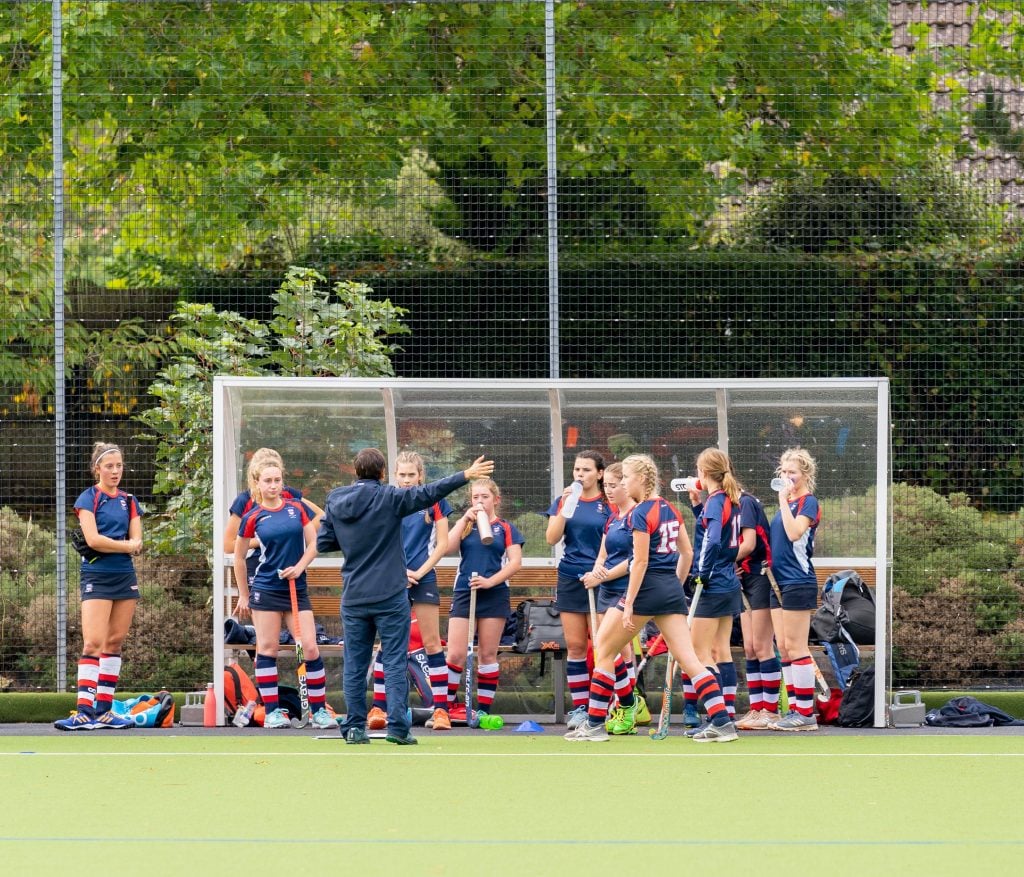
I have been lucky enough to have managed to secure visits and talks from some extremely relevant and current players – especially considering logistical limitations which are sometimes at play! Over the last five years we have been fortunate to have had a number of amazing sports personalities and champions visit and/or speak to students, including: Maddie Hinch MBE (following her gold medal in Rio 2016), David Ames (GB men’s captain at the time and recently appointed as Captain for the Paris Olympics) and Sam Ward (after he returned to GB duties following his injury which would have ended anyone else’s career) who has just been included again to compete at yet another Olympics and is still scoring goals despite having being registered disabled due to loss of sight in one eye.
Often hearing a different voice and having time specifically dedicated to discuss aspects of international sport and all that goes into it – the positives and the challenges – is valuable to young people and staff alike. What I think is important when meeting and speaking with these players, for the students, is that it makes things tangible. Discovering that the people we see play at the top level are normal people and all started at the level our students are at in School is invaluable. Knowing what they have gone on to be able to achieve in sport encourages students, making what may be their dreams a complete possibility as they think, ‘I could do that!’ What is clear from all the talks, and also my own career, is that it is not always plain sailing, but it is worth it and that’s such an incredibly important message to share with young sports people.
Concluding, Mariette shared,
“Whatever level you are in sports, whatever your hopes and dream may or may not be, the Olympics is something we can all share and celebrate and I hope everyone has the chance to see at least some of the Games – I know I will be watching as much as I possibly can!”
You can read more about Hockey at Woodbridge School at woodbridgeschool.org.uk/sport/hockey/
More news
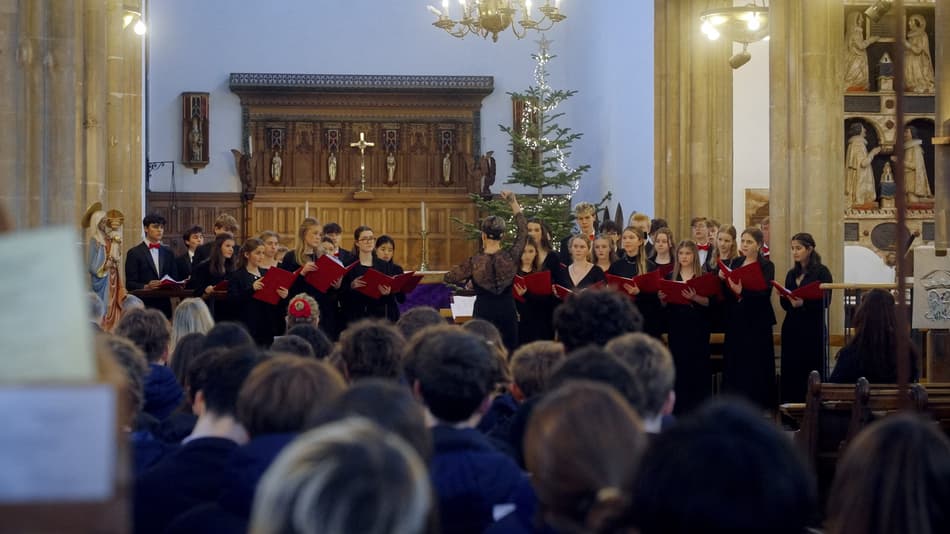
Carol Service at St Mary’s Church, Woodbridge

Mary, Joseph, Jesus and 'The Fleece Force' – Woodbridge School Prep Nativity
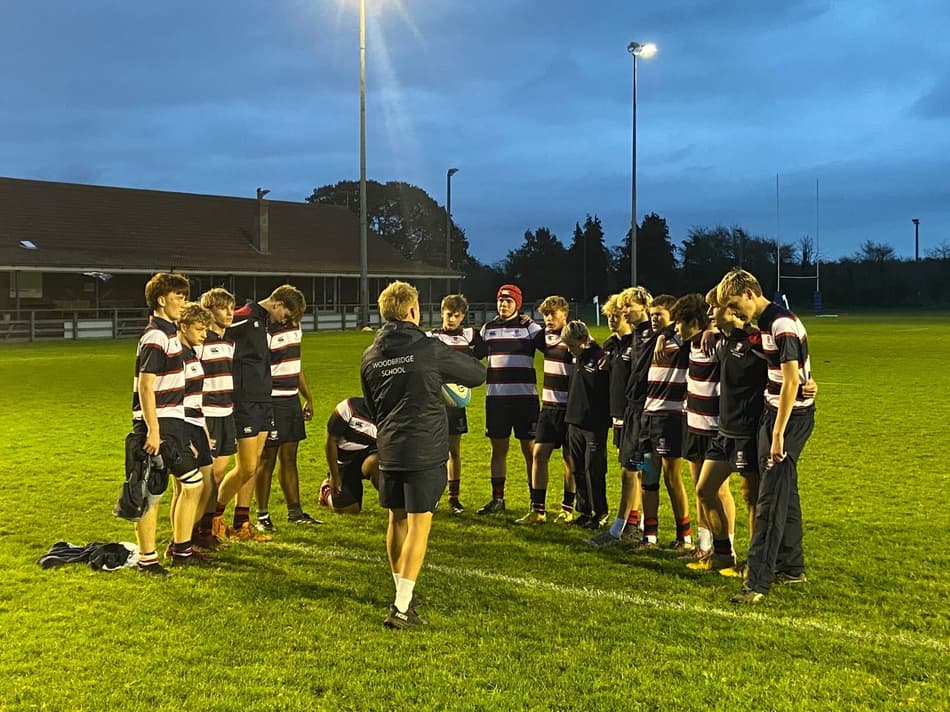
Woodbridge Rugby Roundup - Dec 2025
